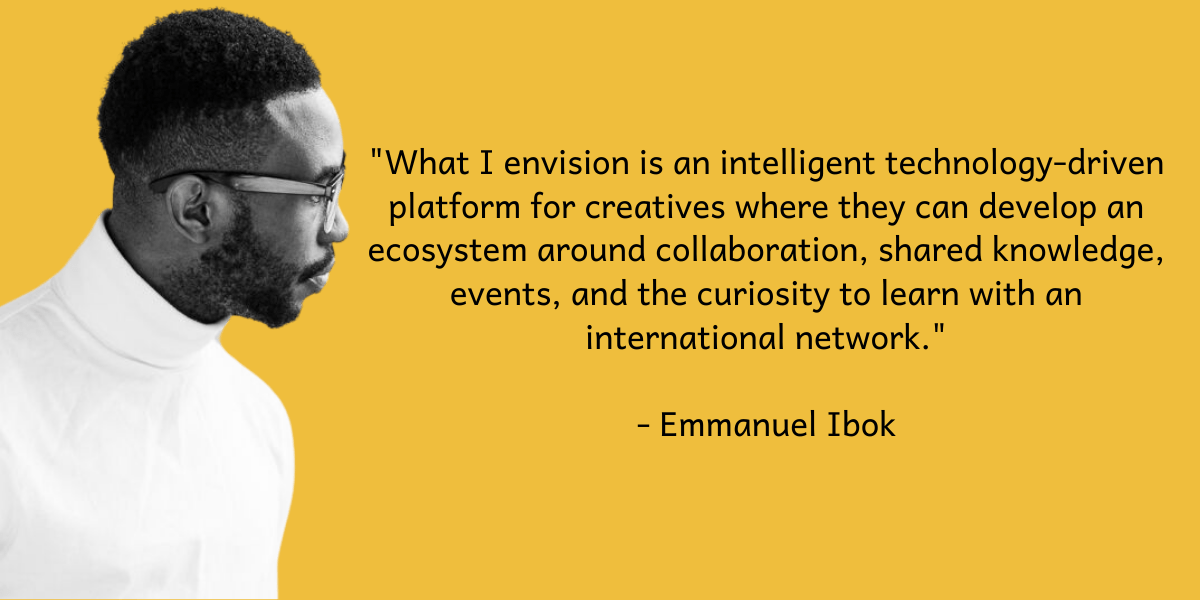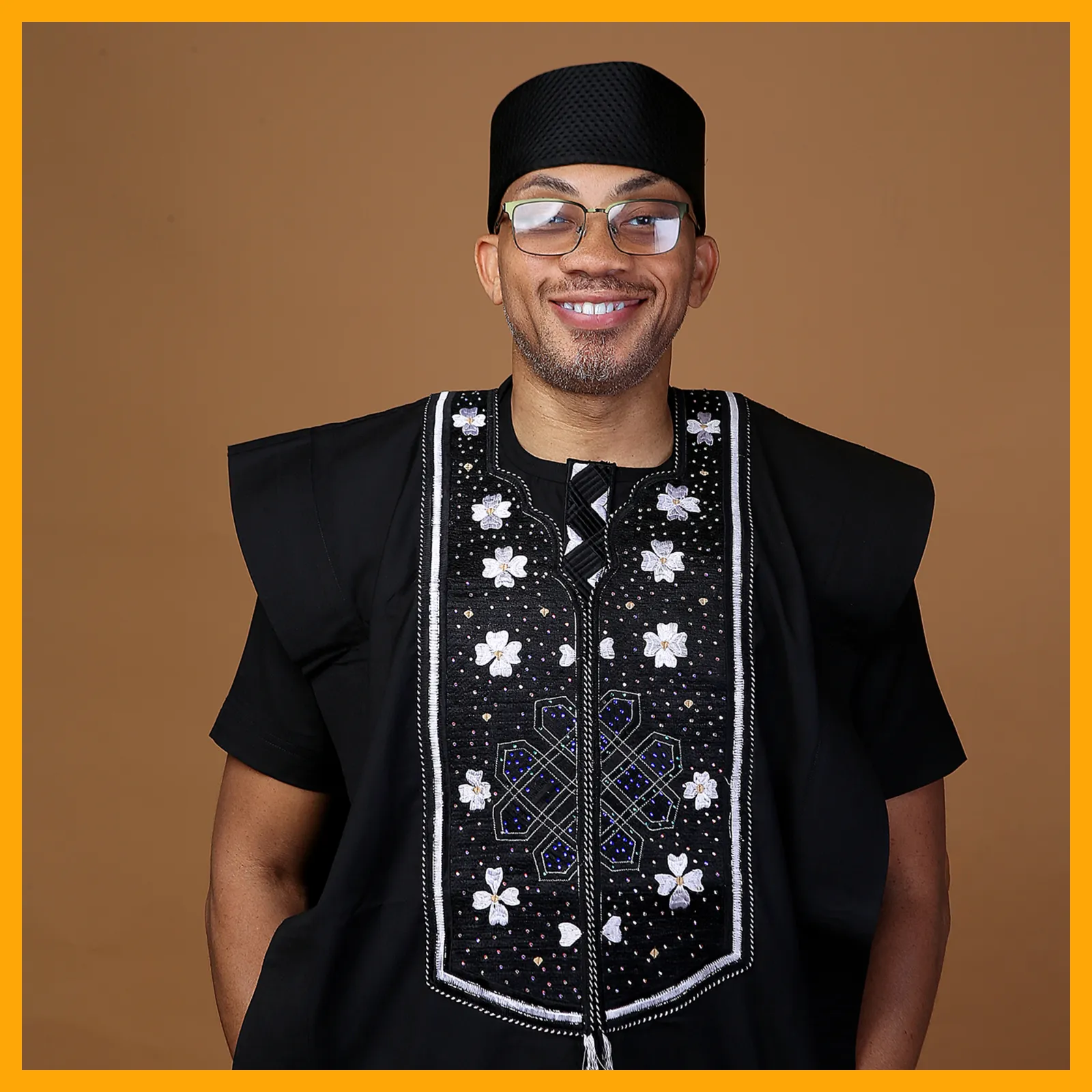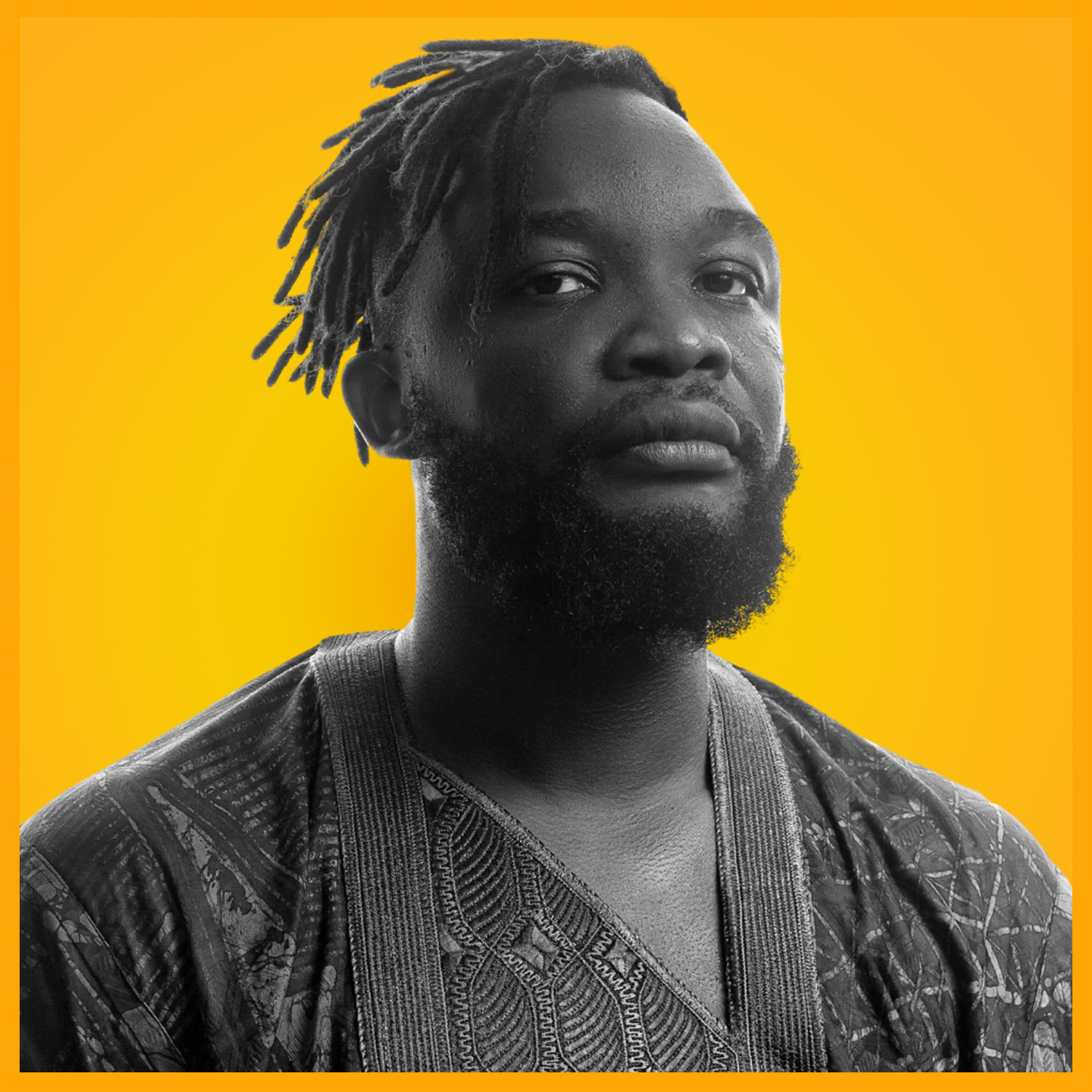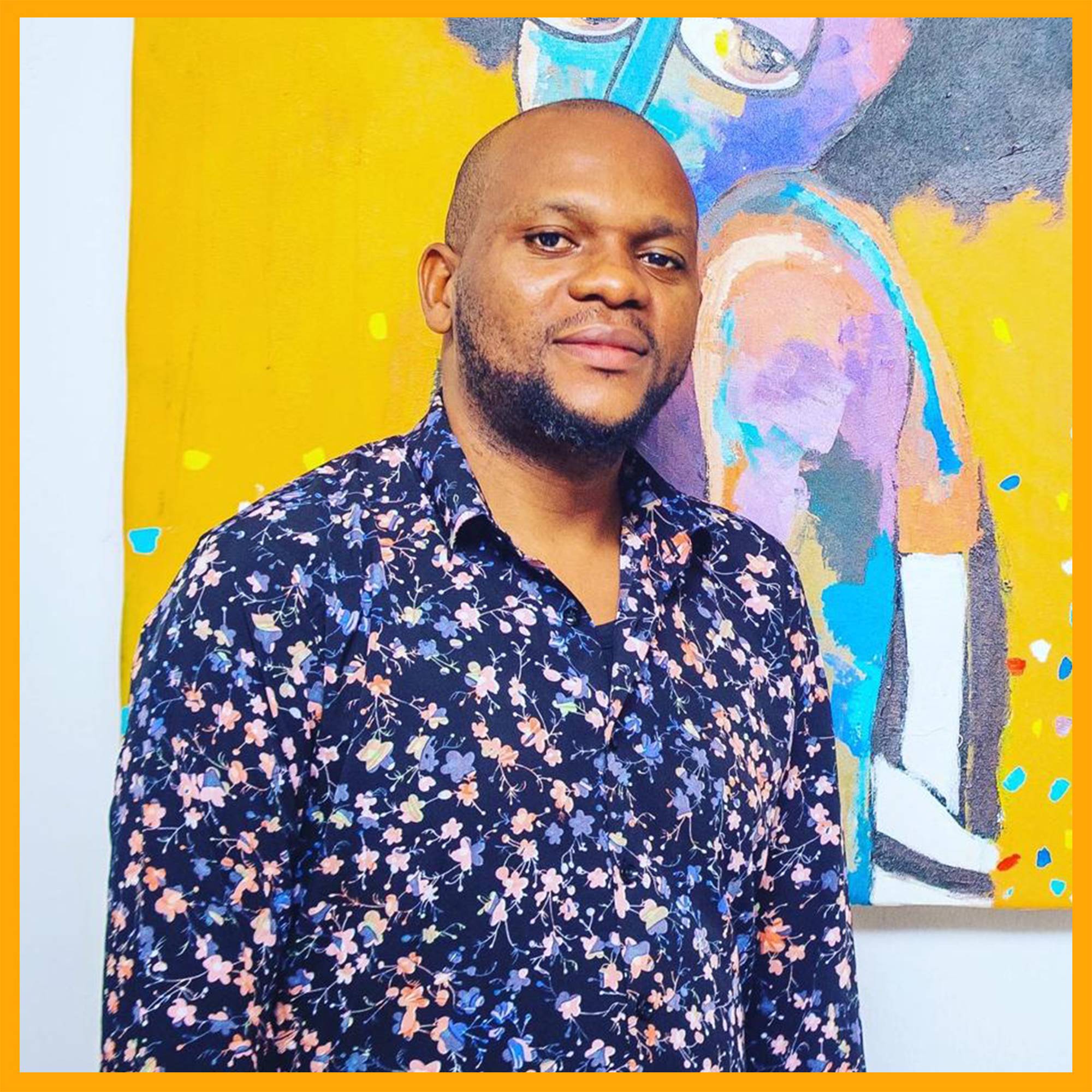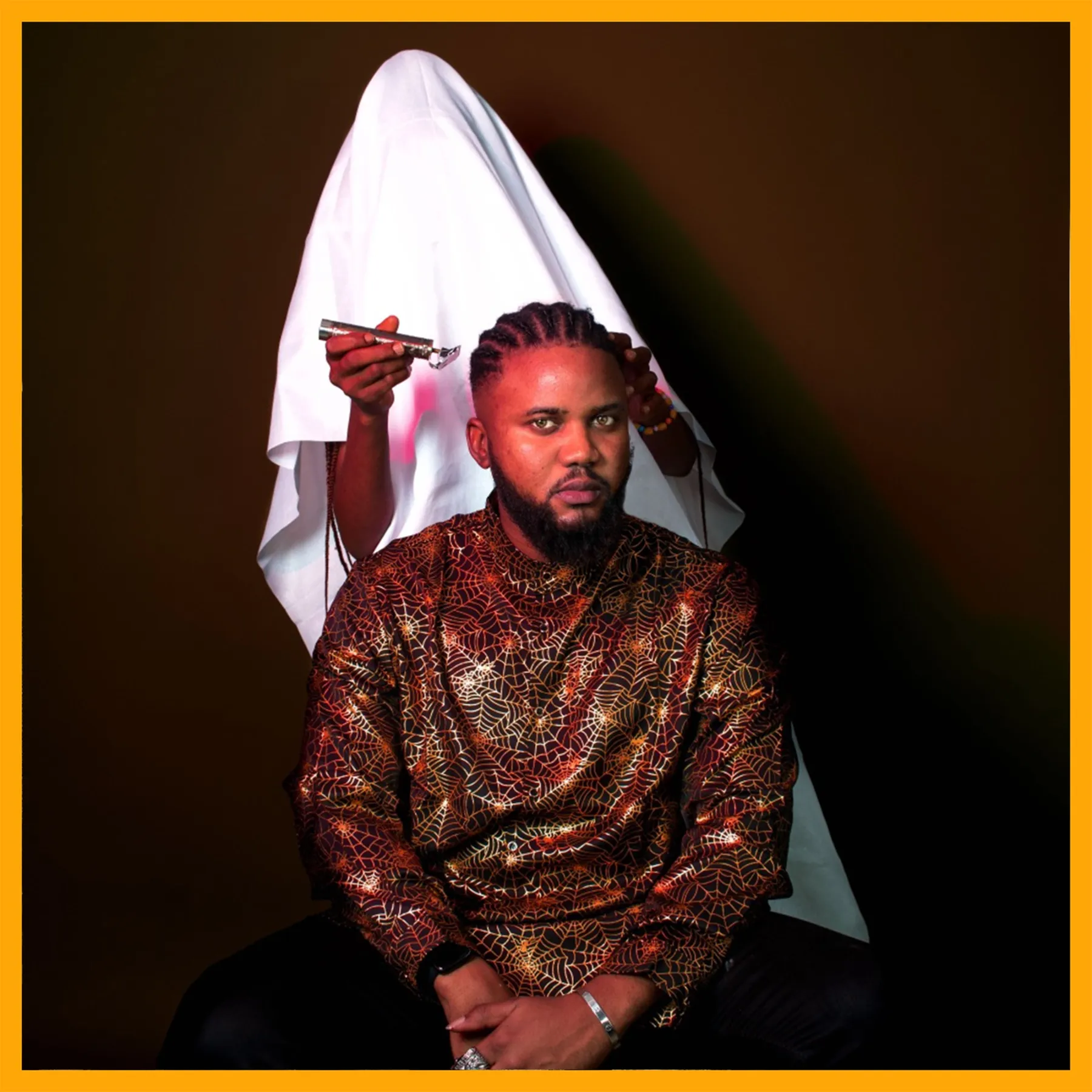There are currently a lot of creatives thriving in regular jobs within other industries. Some have chosen to abandon their creative side altogether, while some keep creating as a hobby. Then, there are people like The Big Parrot, Emmanuel Ibok, who have built great careers in other industries, and also building careers in the creative space.
Building a career as a creative is quite the task, which is why what Emmanuel is doing is no mean feat. Born and raised in Port Harcourt, Rivers State, Emmanuel has always been entrepreneurial by nature. This led him to develop a background in Economics and Sociology (Kwame Nkrumah University, Kumasi, Ghana), Business Studies (University of East London, London, England), and International Business (Grenoble Ecole de Management, Grenoble, France).
“All of these has set the perfect path for me to continue to develop my ambition as an entrepreneur and, clearly, when you take on that path – considering how daunting it can be – you want to do something you naturally have passion for, cue in my creative side,” Emmanuel says.
Now based in Berlin, Germany, Emmanuel works in the technology space in a career in which he has worked with some of the most impactful players in the industry – from Intel Corporation to Salesforce. He’s now the head of operations excellence of the client success organization at Emarsys, an SAP company.

You’d think someone with this kind of CV will have no interest in “mundane” things like poems, music, art, films, and so on because he’s busy building solutions for the next generation and charting a course for the future of business and client relations. However, Emmanuel not only indulges in his creative side – he’s been running an active blog for 11 years – but has started to build a career out of it with the founding of Talku Talku.
Speaking of his journey from a kid who starred in church dramas and recitals and played the drums for his primary school band, to an operations expert and towards founding the fully remote organization, Emmanuel says, “I have identified with my creative side since my formation years. It started as scribbles in a ‘book’ I created as a young boy. You know that compilation of papers cut from exercise books. I also had a ‘publishing company’ name.
“As I continued to develop and make sense of the world around me, the creative dots begin to connect – the appreciation of the muse that drives creativity, the fact that you can get creative inspiration from anywhere and anything, the flavours, and colours that creativity brings to our world. This can also apply to any walk of life with great success.”
He realized this at 18 years old when he saw that his “philosophical poetry” was something that he could share beyond his close circle. But being from a typical Nigerian family with parents who have already mapped out their children’s futures, he had to start on the track that was mapped out for him and eventually find his way in the end, leading to a fulfilling career and the birth of Talku Talku.
As stated earlier, building a career as a creative is no mean feat. A lot of things are missing in the creative space – which makes it hard for real talents to find their way into their niche without being choked out. This is why Emmanuel chose to build the system instead of look for how to get into the system.
“I think a thorough systemic structure that allows for talent admittance, development, nurturing, and growth [is missing in the Nigerian creative space]”, Emmanuel, who’s also an Ambassador for InterNations (the largest community of expatriates in the world with over 3.3 million members from across 420 cities), says.
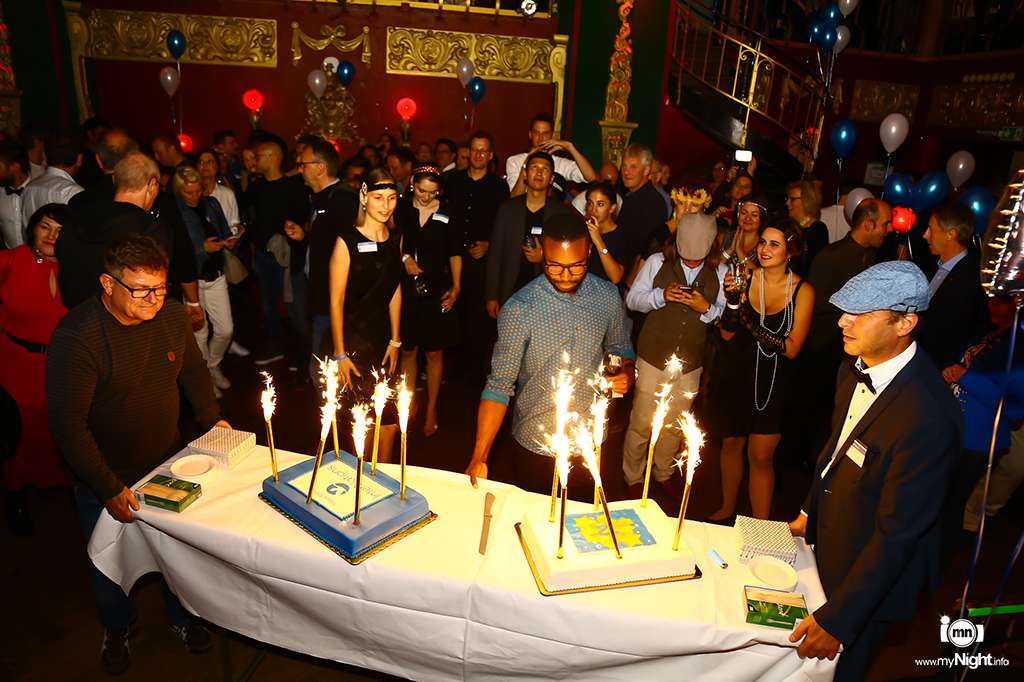
“Most successful Nigerian creatives had to find their way in the wilderness and luckily hit gold. Give their exact formula to another, and that person will not pull it off. But if you go to a law school and understand thoroughly, you can make a decent lawyer. Mavin Records understood this and put up a structure for their niche. The success of their artistes is evident.
“On the other hand, you have a poor valuation of the skills due to a perception issue rooted in societal construct, lack of consumer insights, and inadequate data to learn and scale concertedly. Will an average Nigerian buy a painting valued at thousands of dollars? How many Nigerians buy original albums or pay to download from their favorite artists? Bridging these two gaps – the “talent development and nurturing” issue versus the “consumer perception and lack of data” issue – will herald a glorious era for the creative industry in Nigeria.”
As to how Talku Talku was conceived and the challenges of running a fully remote organization, Emmanuel says: “You know, back in 2009 when I launched my poetry blog on WordPress (for context, WordPress was founded in 2007), I always imagined having a platform where creatives could showcase. I did a few features on my blog at that time, but I didn’t have the capacity to build further and run a system.
“In 2018, I tried again to launch a platform, but it failed. The failure of that platform hit me deep and in 2019, the idea for Talku Talku was born. I had learnt my lessons [from the past failure], so I knew exactly what to do next. I knew from the get-go our organization will be fully remote plus I have had the experience of being able to work remotely for over 7 years now. [However] one of the biggest [hiccups] is the fact that the Nigerian workforce – which is where we are primarily recruiting from – struggles with having a standard organizational culture. When you put that on top of the fact they won’t be physically supervised, it creates a huge challenge.
“I took some of the best practices in my experience, while carefully easing in to consider the culture gap in the Nigerian workplace. The biggest breakthrough was in empathizing with challenges (power supply, internet data, and living with families who struggle to understand the home office concept), and providing resources to mitigate some of these. In addition, creating digital touchpoints into the workflow to automate presence and track productivity, irrespective of being remote. You can say my career experience of running business operations played a key role.”
Talku Talku has been going strong since June 30th, 2020. All the parrots have been grateful to not only be a part of shaping Talku Talku’s mission of creating a digital community for creators. and a hub for amazing digital content, but to grow as creators because of Emmanuel’s investment in the talent he recruits to be a part of the organization.
The way Emmanuel invests in all the parrots here at Talku Talku, as the Big Parrot, is the same way he hopes that the creative scene in Nigeria is deliberate about investing in creative s.
“The [creative] scene is vibrant with a huge upside, but it lacks a system – ironic to say for creativity – support structure, and a decisive track to develop and build a career.
Also, there is a huge misconception in the industry, from my empiric observation where Nigerian creatives think success translates to massive wealth,” Emmanuel says.
“A widespread orientation is needed so young creatives don’t end up creating unattainable benchmarks for themselves and missing learning and developmental opportunities. At Talku Talku, our ambition is to be the largest incubator of creative energy in Nigeria (for starters). What this entails is helping creatives shape their narrative, giving them a platform, providing resources, and building robust networks that they can leverage while putting them in position to grow their revenue.”

Emmanuel is leading Talku Talku using his creative know-how and his operations expertise to build a repeatable and scalable value chain around the end-to-end journey of creatives and creativity, just like there are tracks for STEM aspirants and aspirants to other industries.
After all, a report by PwC on global entertainment and media covering the period of 2017 to 2021 shows Nigeria’s potential as the world’s fastest-growing entertainment industry, with a 12.1% CAGR. In 2020, the Nigerian music industry alone was estimated to be worth $73 million, according to Hajiya Aisha Abubakar, the Nigerian Minister of State for Industry, Trade, and Investment. There’s so much that the creative space in Nigeria has to offer, and that is why Emmanuel is steadily building a career around it.
“What I envision is an intelligent technology-driven platform for creatives that is beyond just showcasing their abilities and looking to sign deals. What I envision is one where they can develop an ecosystem around collaboration, shared knowledge, events, and the curiosity to learn with an international network. All these will sit on a system in partnership with credible bodies that allow for creative talents to be admitted, developed, nurtured, and also allowed to grow at pace and within capacity.”
Think of how not all footballers end up being Ronaldos, but they compete, enjoy the spirit of the game, and play a role. There is a huge potential to build a vibrant creative platform in Nigeria, and that concerted effort will allow consumers to have a better sense of its worth thus impacting the valuation of the skills and abilities the positive cultural evolution that creativity can play as well as the economic stimulation that can come from it.”
Emmanuel is a creative inspiration for people who want to build a career in the creative space beyond creating and hawking their creations. With Talku Talku, he’s building a system and a means to create a proper value chain while also getting good creative content across to people. Emmanuel advises that creatives should “always look for pointers that reinforce your creativity (or lack of). They could be in form of constructive criticism, support, and/or monetization. These pointers will help shape your narrative [as you look to build a proper career out of your creativity].”


